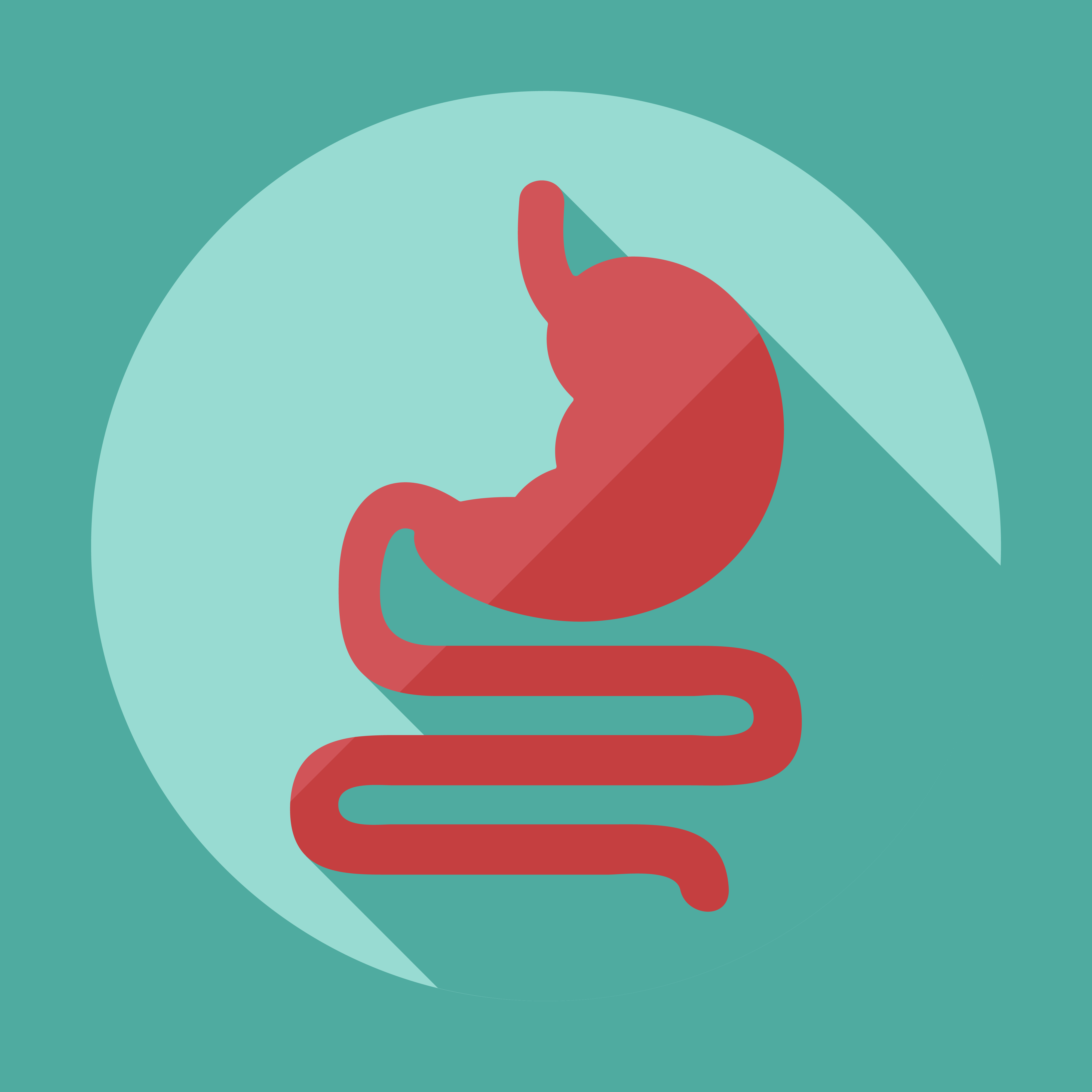By: Amanda Belo
The human digestive system is a unique and fascinating part of your health! But, not many of us take the time to really understand the complexities of it despite the direct effect on your ability to meet your weight loss goals. Not to worry! We’ve got the low-down on digestive health + nutrition all rounded up into one post for you.
What Is the Digestive System?
The digestive system, also known as the gastrointestinal tract (GI), is essential to getting the nutrients the body needs for healthy function. Whether you call it the gastrointestinal system, digestive tract, or gut, there is no doubt that your overall wellbeing is affected by digestive health!
Parts of the Digestive System
- Mouth: It all starts here! Food enters the mouth and is broken down by chewing and salivary gland chemicals.1
- Esophagus: After swallowing, food enters this “food pipe” to make its way to the stomach.1
- Stomach: Food is further digested as it enters the stomach where it is sterilized to ensure what is ingested does not cause illness.1
- Small Intestine: Food continues to be broken down while the small intestine absorbs nutrients to deliver to the bloodstream.2
- Large Intestine: Food enters the large intestine, along with waste that eventually becomes stool. This organ continues to absorb nutrients and water.2
- Pancreas: Digestive juices in the pancreas break down carbohydrates, fats and proteins.1
- Liver: The liver helps break down fats in food, remove toxins in the body, and produces bile, which is secreted and stored in the gallbladder.1
- Gallbladder: Stores bile to aid in the digestion process by releasing it into the small intestine to break down fats in food.2
What Does the Digestive System Do?
Not only does the digestive system help break down food into nutrients for your body, but it also supports your immune system in three ways:1
Stomach Acid
First, stomach acid (Hydrochloric acid), as well as digestive enzymes in the stomach, create an environment that help protect the body from potential illness from the food you ingest. Stomach acid actually aids in making the overall digestion process easier in several ways. Specifically for immune health, it sterilizes the food that enters your stomach, because microorganisms naturally present in food cannot survive acidic environments, therefore making you less susceptible to risk for foodborne illness.3
Peyer’s patches
Second, studies have shown that Peyer’s patches may assist in immune surveillance4 of the digestive tract. These small patches of lymphatic tissue in the small intestine “interact with antigens found in the intestine to produce antibodies.”5 In other words, they help to defend against potentially harmful substances by keeping watch and taking action to get rid of those substances if necessary.4
Gut Microbiome
Lastly, the gut microbiome helps maintain digestive and immune health. Your GI tract is home to hundreds of different bacteria, or microflora, some of which support the body in maintaining healthy digestive function. Approximately 70 – 80% of your immune system is located in your gut6, so supporting a balance between “good” and “bad bacteria in the GI tract is important. An unhealthy gut with too much “bad” bacteria will impact your health.
The Gut as the “Second Brain”
We all have an idea of what our brain is, what it does and where it is located. What you may not realize is that our GI tract has a nervous system of its own with more than 100 million neurons7. In fact, what is also known as the “second brain” or the enteric nervous system (ENS) works autonomously from the command center in your head, and mainly controls the digestion process.
“The nervous system in your gut decides when to move food from the stomach to the small intestine, when to release hormones and when to expel waste.7 It also decides when to reject food (i.e. vomiting),” says Real Simple.
Researchers in a recent study just uncovered how the ENS functions to digest food when necessary! While the ENS is not conscious like the brain in your head, evidence shows that it is capable of communicating with the brain and may even influence mood8,9. Researchers have found the ENS signals the central nervous system (CNS) with physical sensations in the digestive tract connected to emotional responses, like stress or nervousness. According to Dr. Richard E. Cytowic of Psychology Today, when our gut microbiome is not healthy, it is evident in the body.10 He stated in an article, “This biomass of bacteria communicates with important neurotransmitters embedded throughout our enteric nervous system to send messages that influence the way we feel.”10
It really gives a different outlook to having butterflies in your stomach or using gut thinking!
When Digestion Goes Wrong
In many cases, you know when you’re experiencing digestive issues. Indigestion, heartburn or abdominal pain are not the most subdued of symptoms! Digestive issues can also be signs of functional or structural gastrointestinal disorders. Functional gastrointestinal disorders are the most common and can include constipation, diarrhea or IBS.11 So why does it happen? Here are some factors that may contribute to poor digestion:
- Insufficient diet (e.g. low in fiber; too much dairy, fat, salt or sugar)11
- Eating too fast or not chewing thoroughly11
- Stress11
- Inactive/ Little exercise11
- Change in routine (e.g. traveling, new job)11
- Restricting your bowel movements voluntarily11
- Low stomach acid11
- Taking certain medications11
- Not drinking enough water11
Maintaining Digestive Health
Eat Mindfully
Whether you’re trying to scarf down food on your five-minute lunch break or you’re just so famished that chewing is not an option, your body’s ability to digest food depends on how food enters the system (among other bodily functions). When you eat slower, you chew slower. When you chew slower, you make it easier on your stomach to digest by giving food more time to break down better.
Eating slower and more mindfully not only benefits digestion, but also allows you to enjoy the experience of tasting food. Being more in tune while eating may also benefit satiety and hunger. Studies have shown that eating slower allows you more time to feel full and eat less. It takes your brain approximately 20 minutes to produce hormones that communicate you are full.12
Exercise
We exercise to promote overall health, stay in shape and build body strength. Exercise is also known to support digestive health as it increases blood flow throughout the body – including the digestive system.13 Exercise may support the flow of food through the digestive tract; stimulate the GI tract and intestinal muscles to help avoid constipation; and, may slow down digestion so the body can take in more nutrients.13 Yoga is a well-supported activity to benefit digestive health due to its focus on energy flow. In addition, experts recommend moderate exercises like walking or jogging to promote better digestion.13 Even deep breathing exercises may be beneficial.
Cope with Stress
The connection between digestive health and mood has been widely studied. The vagus nerve is the link between messages sent from the GI tract to the brain, communicating the state of your viscera (the inner organs of the body, particularly in the abdominal cavity). This nerve either communicates to the brain that everything is business as usual in terms of digestive function, or, it signals to the brain that there is an issue and the digestive tract is in distress (i.e. constipation, bloating, etc).7 According to Christopher Bergland in another Psychology Today article, “visceral feelings and gut instincts are literally emotional intuitions transferred up to your brain via the vagus nerve.”14
Stress has the potential to negatively affect blood flow, which means it is inhibiting your digestive system.15 With that said, there’s a good chance the less stressed you are, the less risk your gut will have of going haywire. Taking moments for yourself that encourage relaxation balance, and discover tools/techniques that support calmness – even in times of stress – will not only be helpful to your mental health but also your overall wellbeing.
More specific suggestions include: relaxation therapy (e.g. yoga, meditation, mental imaging), talk therapy (e.g. friends, family, licensed therapist), eating well, balanced and mindful, and avoiding dependence on substances that may actually be stressors themselves (e.g. alcohol, caffeine, smoking).15
Key Nutrients for Digestive Health
It would be so much easier if no one had any problems digesting anything, but that is not the case. There are just certain foods that lend themselves better to easier digestion.
Fiber
Fiber is perhaps the most well-known of nutrients that promote digestive health, however, most people do not get enough of it in their diets.16 There are two kinds of fiber, soluble and insoluble. Soluble fiber, which can be dissolved in water, helps promote healthy cholesterol and glucose levels. Insoluble fiber is not dissolvable and promotes efficient movement through the digestive tract and bowel regularity.17
While adding more fiber to your diet is great, make sure you do it gradually as to avoid bloating or discomfort.18 Here are some examples of foods you can incorporate into your diet:
- Oatmeal
- Whole grains and brown rice
- Legumes (lentils, beans, and chickpeas)
- Nuts
- Fresh fruits and vegetables like apples, bananas, mango, carrots, broccoli
- Fortified cereals
- Air-popped popcorn
Water
Water and other fluids actually work with fiber aid in the digestive process. In addition to helping break down food so your body can absorb nutrients, water also helps support bowel regularity and aids in preventing constipation.18 Don’t forget that drinking water is not the only way to get water. There are plenty of fruits and vegetables that are not only have a high water content, but also are rich in fiber.
Probiotics
As mentioned previously, supporting a healthy balance between “good” and “bad bacteria in the GI tract is important. Probiotics are live bacteria which when administered in adequate amounts provides health benefits.19 Many studies have shown that these benefits include promoting a healthy digestive tract. Probiotic foods that can be incorporated into your diet include fermented foods like:
- Yogurt
- Kefir
- Sauerkraut
- Kimchi
- Miso
- Tempeh
Other tips for food include eating leaner meats for easier digestion and saying ‘no’ to fatty foods.
This information is not intended to be substituted for professional medical advice. Please contact a health care provider for consultation if you have questions about a serious medical condition.
Sources:
- NYU Langhone Health. (n.d.). Your Gut Feeling: A Healthier Digestive System Means a Healthier You.
- (n.d.). Digestive System.
- Boyers, L. (2018, May 30). Role of Stomach Acid in Digestion.
- (n.d.). What Are Peyer’s Patches?
- Csanyi, C. (2017, April 24). The Function of Peyer’s Patches.
- Harbolic, B. K. (n.d.). Probiotics.
- Edelstein, (n.d.). Your Guide to Digestive Health.
- Schmidt, K. et al. (2015). Prebiotic intake reduces the waking cortisol response and alters emotional bias in healthy volunteers. Psychopharmacology, 232(10): 1793-1801.
- Clapp, M. et al. (2017, September 15). Gut microbiota’s effect on mental health: The gut-brain axis. Clinics and Practice, 7(4): 987.
- Cytowic, R. E. (2017, January 17). The Pit in Your Stomach is Actually Your Second Brain.
- Cleveland Clinic. (n.d.). Gastrointestinal Disorders.
- Stibich, M. (2018, April 16). Benefits of Eating Your Food Slowly.
- Melone, S. (n.d.). How Does Exercise Improve Digestion?.
- Bergland, C. (2014, May 23). How Does the Vagus Nerve Convey Gut Instincts to the Brain?
- Iliades, C. (n.d.). How Stress Affects Digestion.
- National Center for Health Statistics. (2017, March). NCHS Nutrition Data[PDF].
- The Nutrition Source. (n.d.). Fiber.
- International Food Information Council Foundation. (n.d.). Foods for Health: Eating for Digestive Health[PDF].
- FAO/WHO. (2002). Guidelines for the Evaluation of Probiotics in Food[PDF].



Comments (0)